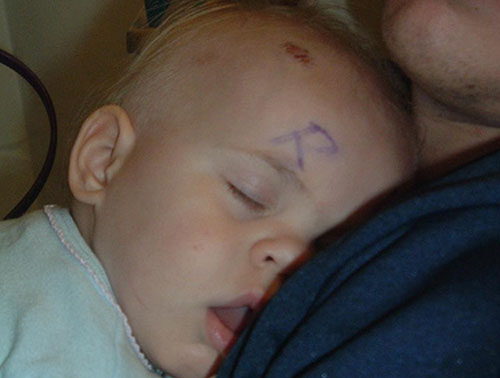
Cancer, Loss, Change
My experience confirms my inclinations toward fluid notions of identity. Cancer isn't something that happens to a self; it's something that transforms it. For evidence of the extent to which cancer forms a "new" person, I would turn to the divorce rate among retinoblastoma families. One of the first things you are told after diagnosis is that couples enduring a child with retinoblastoma have an 80% divorce rate. No doubt much of this can be attributed to the situation's high emotional stakes and the illness's high mortality rate. But also, I would suggest, it is because after a trauma of this magnitude the person you are isn't any longer the person your spouse chose to marry. And all that trauma, emotion, and loss don't make for the best conditions for a new courtship.
First-time parents are likely familiar with a degree of this unheimlich: this feeling of displacement, this interruption. But from the moment of our birth, culture, family, and institutions prepare us for and supply us with material to support such a "normal" transformation. There is no such support for childhood cancer. Hence my and my wife's extreme unheimlich—we were/are an other to ourselves—an extended experience of Davis' laughing body facing an impotent mind. As a successful white male, this is my first experience as really being anything other than "normal."
The difficulty of dealing with cancer's transformations is caught up in our expectations for particular cultural, familial, and institutional narratives— in our case, the anticipation of what should have been the narrative of Rowan's life. Even though, over one year removed from her last chemotherapy session, her cancer is in complete remission and her right eye shows no seeds, we still live in constant fear. Rowan's future will include a steady diet of exams under anesthesia and MRIs. Furthermore, retinoblastoma is an indicator of a disposition toward cancer. We will spend the rest of her life, in essence, waiting for cancer to return. The traditional narratives of driving her first car, graduating high school, going off to college, getting married, and having children are/will be/will-have-been haunted by the most horrible of possibilities and memories.